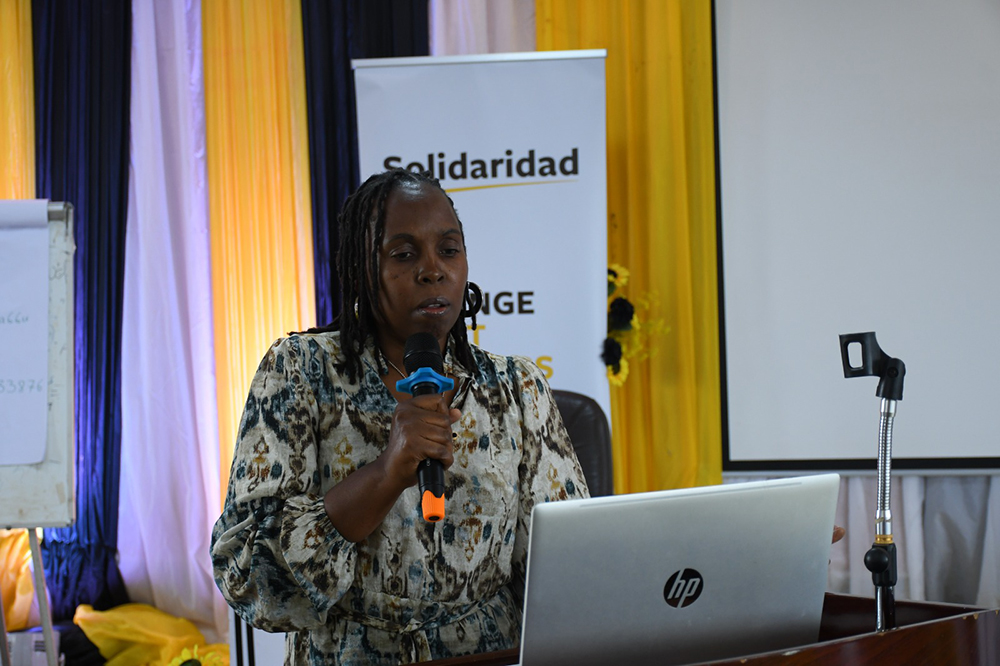By Nelson Mandela Muhoozi
In a groundbreaking move for climate resilience in Uganda’s coffee industry, the Louis Dreyfus Company (LDC), a prominent international coffee buyer, has partnered with Solidaridad East and Central Africa to introduce a carbon harvest scheme.
Officially launched at Esella Country Resort Hotel, on Tuesday this week, the scheme is set to bring extensive environmental and economic benefits to coffee farmers across six Ugandan districts.
Funded by the Danish International Development Agency (DANIDA), the initiative commenced in May 2024 and aims to train 4,500 smallholder farmers by 2027, providing them with tools to combat climate change while enhancing their income streams.
Carbon credits, biochar
LDC’s representative, Benjamin Chastang, explained that the scheme offers financial incentives for practices that reduce carbon emissions, primarily through reforestation and biochar use within coffee farms.
Biochar, a carbon-rich material created from organic waste, serves as both a soil enhancer and a method of carbon sequestration, absorbing carbon that would otherwise contribute to atmospheric greenhouse gases.
Under this model, farmers will earn additional income based on the amount of carbon they sequester through tree planting and biochar production.
“Farmers earn based on the amount of carbon they mitigate through these sustainable practices,” Chastang noted, highlighting that the carbon credits generated will be traded alongside coffee sales, creating a market-driven solution to environmental challenges.
“This not only diversifies income streams for farmers but aligns with global market demands for carbon-neutral products,” he said.
Sustainable coffee production
Solidaridad Uganda’s Project Manager, Flaviah Koyesiga Birungi, emphasized that the initiative’s benefits extend beyond climate mitigation.

The scheme also aims to help farmers comply with new European Union deforestation regulations by certifying them under the Rainforest Alliance and LDC RSP-Advanced standards.
“Our vision is to create a carbon-free coffee supply chain, increase resilience to climate change, and boost coffee production by at least 30%,” Birungi stated.
The program sets ambitious goals, including a projected carbon reduction of 6.15 million tons by 2027, with 5.35 million tons from biochar usage and 14.5 million tons through agroforestry practices.
A coffee traceability tool is also in development, enabling transparency and accountability for sustainably sourced coffee.
Empowering women and youth in coffee farming
A key aspect of the carbon harvest scheme is its focus on gender and youth inclusion, aiming to engage 40% of women and young people in coffee-related decision-making processes.
Dr Catherine Odenyo Ndekera, the Regional Gender Inclusivity Advisor at Solidaridad, addressed the scheme’s role in tackling gender inequality and poverty, which are closely tied to environmental vulnerabilities.
“Gender inequality is a root cause of poverty, compounding the challenges of climate change for marginalized groups,” Dr. Odenyo observed, emphasizing that women and youth are critical stakeholders in sustainable agriculture.
She added, “The scheme’s focus on empowering these groups is designed not only to address systemic inequalities but also to create a more resilient agricultural sector that benefits all community members.”
The Chief Guest at the launch, Ole Dahl Rasmussen from the Danish Embassy, lauded LDC and Solidaridad’s efforts in aligning the project with Denmark’s environmental and inclusivity priorities.
“This initiative reflects our commitment to promoting environmental sustainability and social equality,” Rasmussen said, pledging continued support for the carbon-free coffee scheme.
He said Denmark’s investment highlights the country’s strategic interest in bolstering climate resilience through international partnerships, particularly in vulnerable regions like Uganda.
Farmer perspectives
Local coffee farmers expressed optimism about the scheme, viewing it as a beacon of hope in a sector often fraught with challenges.
Amelia Nassali, Vice Chairperson of Mityana, noted that while regulatory changes in the coffee industry have caused unease, the carbon scheme offers a promising opportunity for higher-value coffee production.
“This scheme gives farmers a chance to be compensated for environmental conservation efforts, which also builds resilience against climate variability,” Nassali remarked.
For farmer Herbert Kintu, the scheme offers a long-awaited response to environmental challenges impacting coffee yields.
“Our farms have suffered due to prolonged dry spells. Programs like this can help us adapt and sustain our livelihoods,” Kintu shared, urging the government to adopt similar climate-focused initiatives nationwide.
Broader environmental impacts
The carbon harvest scheme will initially target farmers in Mityana, Kiboga, Wakiso, Shema, Ntungamo, and Lwampala—regions affected by climate change but rich in agricultural potential.
Yusuf Nsubuga, a senior meteorologist at the Uganda National Meteorological Authority (UNMA), emphasized the importance of local mitigation efforts.
“Our recent data shows that warming is increasing across Uganda, placing an immense burden on farmers. This initiative supports national climate goals and gives farmers a way to manage environmental impacts directly,” Nsubuga noted.
Rachel Wanyoike, Managing Director of Solidaridad East and Central Africa, said “There is a need for the private sector and civil society organizations to invest in climate-smart solutions. This is truly what can help us save the planet.”
According to Wanyoike, climate change is here to stay, making climate-smart approaches essential to developing new business models that move beyond business as usual.
She added, “The carbon farming project emphasizes actions to reduce carbon emissions by 22% by 2030. It aims to unlock the potential of agroforestry in reducing the carbon footprint in the coffee supply chain.”
LEAD PHOTO CAPTION: Rachel Wanyoike, the Managing Director of Solidaridad East and Central Africa addressing participates. Courtesy photo





